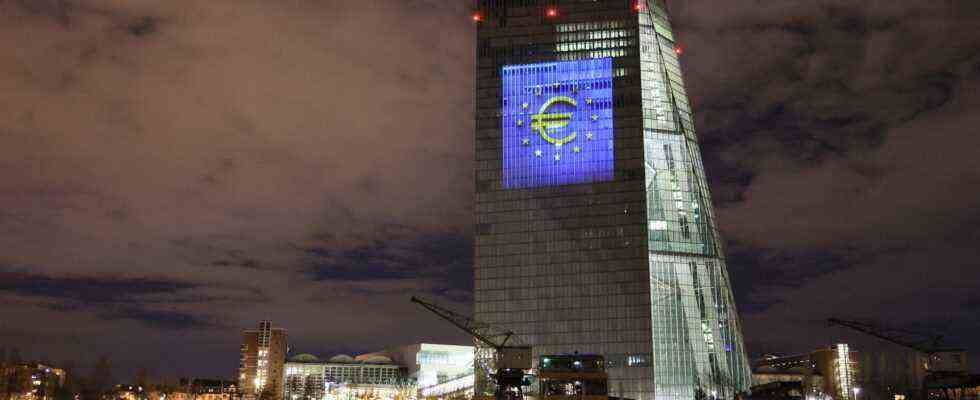Status: 03.01.2022 5:15 p.m.
The inflation rates in the EU countries have risen sharply. Steps to contain the pandemic are holding back economic growth. How can the EU react to the threat of stagflation?
Europe is far from over the top – from an economic point of view. At the beginning of last year it was still so beautiful, also in Brussels: If 2021 is done, then Corona will be a thing of the past, people in Europe will enjoy all freedoms, life and growth again. It is well known that today’s reality is different and sobering. Corona is still or is here again – in a different variant – and no one can really estimate what that means, also economically.
What comes after the recovery fund?
Where optimism reigned a few months ago, great caution now reigns. “We have major economic challenges ahead of us – after Covid and the restructuring of society towards climate neutrality. That is why we also have to find ways of how we can manage the growing debt level in the states in a realistic, growth-friendly manner in view of all this,” said EU Economic Commissioner Paolo Gentiloni.
It is true that the European member states have now put a lot of money into their hands with their Corona fund in order to be able to finance investments in these challenges – namely 750 billion euros, largely financed through joint debts. But even now some are wondering whether that will be enough.
Among them is the SPD European parliamentarian Joachim Schuster. “Now there is enough money for four years for the time being,” he says. “But for the time after that, I am clearly in favor of stabilizing this investment fund – in conjunction with a solid EU revenue policy in order to also be able to service the debt.”
Growing pressure on the ECB
Keep investing, stabilizing, paying off debts – it is a mammoth task that is not made easier by the fact that inflation, which had been believed to be dead for almost decades, has now returned to Europe. In the coming year, pessimists are expecting six percent or more in monetary devaluation, caused by the pandemic and rising energy prices. They are demanding a change in direction from the European Central Bank: away from the hundreds of billions of billions of dollars in bond purchase programs, away from zero interest rates, and towards tighter monetary policy reins.
But: The European Central Bank (ECB) and its President Christine Lagarde make their decisions independently of politics. A fundamental change in direction by the ECB has not yet been identified. Besides, not everyone in Europe would be happy with that. With higher interest rates against inflation, there is fear, especially in southern Europe, that the economy, which is already badly hit by Corona, will be stalled.
High prices for petrol and gas or not: France’s Finance Minister Bruno Le Maire considers inflation to be a phenomenon that will soon disappear. “Our findings show that this inflation is a transitional phenomenon. The important thing now is that it does not settle in the next few months. In any case, energy prices have a significant part to play in this.” As soon as energy prices fall again, inflation will also fall, believes Le Maire – only: they are not falling yet.
Impending stagflation
“High inflation with a stagnating economy – that is the worst that can happen to an economy,” says the CSU European parliamentarian and economic expert Markus Ferber. “It is the ECB’s job to provide incentives for countermeasures that are then also understood by the markets.”
Economists call such a scenario stagflation, quasi: plague and cholera all at once – or in these times delta and omicron. And that’s why the EU will have to find ways to deal with this threatening prospect in 2022 as well. Because inflation is hardly less serious for people’s lives than the threat of job loss. Politically, at the moment a balance has to be found between the two. A balancing act.
Inflation and stagnation ahead – what worries Europe economically
Holger Beckmann, ARD Brussels, 3.1.2022 11:14 a.m.

